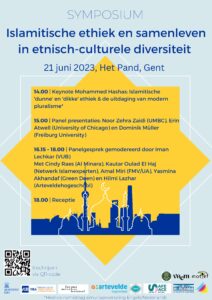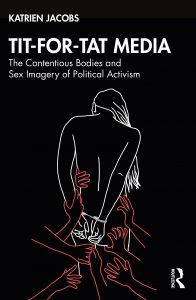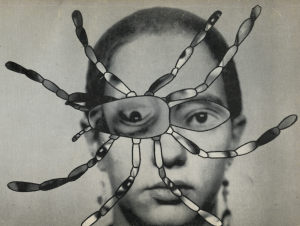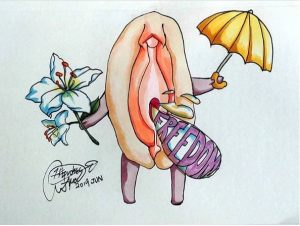
CALL FOR PAPERS
In the last decades, anthropological scholarship on Islam has given considerable attention to ethics and Muslim self-fashioning. In the context of Muslims in Europe the ethical turn was most productive in relation to limitations of secular/liberal national regimes (e.g. Fadil, 2011; Jouili, 2015), various forms of governmentality by state and non-state actors (e.g. Ahmad & El-Yousfi, 2021), and in relation to gender and sexual practices (e.g. Amir-Moazami, Jacobsen, & Malik, 2011; Lechkar, 2022). Recently, proposals were made for an anthropology of Islam that takes faith, divinity and God more seriously, for instance, by critically interrogating anthropologists’ methodological atheism (Willerslev & Suhr, 2018). Or by suggesting to devote more attention to the ‘power of God’ by examining understandings of human-divine relations, and the ways theology shapes human interactions through God’s presence and mediation (Schielke, 2019). The question has been raised as to how we can discern and discuss the shapes of an ‘autonomous Islamic tradition’ in Europe, while moving beyond foundational concerns with Muslims’ sameness/Otherness (Fadil, 2019).
The goal of this day is to reflect further on current approaches in the anthropology of Islam, particularly by foregrounding Islamic faith, spirituality and ethics, and the conditions of life in superdiverse contexts. How can anthropologists study everyday life but also the role of Islamic ethics in environments marked by multiple forms of cultural and religious difference? More generally, how can both disciplines – Islamic theology/ethics and anthropology – be brought into a productive dialogue and conversation? We welcome presentations that discuss empirical research or theoretical reflections. Presentations of findings, work in progress and think pieces are all welcome.
Keynote: Mohammed Hashas (LUISS University of Rome)
Roundtable: Samuli Schielke (Leibniz-Zentrum Moderner Orient (ZMO), Martijn de Koning (Radboud University Nijmegen), Mieke Groeninck (KU Leuven; Odisee University College), Merve Reyhan Kayikci (KADOC- KU Leuven)
Please send your abstracts (250 words) and short biography (100 words) to an.vanraemdonck@ugent.be & iman.lechkar@vub.be before May 7th, 2023. Feel free to address us with any questions. Decision notifications will be sent at latest by May 14th 2023.
Convenors: An Van Raemdonck & Iman Lechkar
PROGRAM
Download the full program here: program + abstracts
PART 1 Anthropology’s encounters with Islamic ethics/theology (Eng.)
9.30 Welcome and introduction
9.45 – 11.15 Roundtable 1 with Samuli Schielke (Leibniz-Zentrum Moderner Orient (ZMO), Martijn de Koning (Radboud University Nijmegen), Mieke Groeninck (KU Leuven; Odisee University College), Merve Reyhan Kayikci (KADOC- KU Leuven)
11.15 – 11.30 Coffee
11.30 – 12.45 Panel 1 Amin El Yousfi (Cambridge University), Hakan Çoruh (Charles Sturt University), Shajeem Muhammed Fazal Pallikkara Veettil (Indian Institute of Science Education and Research), Derya Iner (Charles Sturt University).
12.45 – 14.00 Lunch break
PART 2 The role of Islamic ethics in the lives of Muslims in Europe (Eng/NL)*
14.00 – 15.00 Keynote Mohamed Hashas “On Islamic thick and thin ethics and the challenge of modern pluralism”
15.00 – 16.00 Panel 2 Paper presentations: Noor Zehra Zaidi (UMBC), Erin Atwell (University of Chicago), Dominik Müller(Freiburg University), Kim Lecoyer (Odisee University College).
16.00 – 16.15 Coffee
16.15 – 18.00 Roundtable 2 (NL) with Muslim civil society organisations “The role of Islamic ethics in everyday life”
With Cindy Raes (Al Minara), Kautar Oulad El Haj (Netwerk Islamexperten), Amal Miri (FMV/Antwerp University), Yasmina Akhandaf (Green Deen) en Hilmi Lazhar (Arteveldehogeschool).
18.00 – 20.00 Reception
*Live translation English/Dutch will be provided.
This event is free and all are welcome to attend!
Please register here: https://www.eventbrite.nl/e/symposium-islamic-ethics-living-in-ethnic-and-cultural-diversity-tickets-623489492857
For questions or more information, please contact An Van Raemdonck, an.vanraemdonck@ugent.be



 In this talk, Katrien Jacobs will discuss a polarization in social media discourses and sexual politics in the field of online activism. Political activists across the political spectrum are using online visual cultures as “extreme speech” to target each other and as a mechanism of emotional release and social cohesion. The talk will zoom in on the role of sex-focused visuals used during the Hong Kong Anti-Extradition movement of 2019 and coinciding with “a highly radicalized “laam chau” doctrine. (“If we burn, you will burn with us”). It will outline the wider techno-political contexts of these visuals and also make a plea for archiving and studying them despite their highly contentious and “rubbish-like” nature. It will discuss research methods of “historicizing” and “humanizing” this imagery by positioning them as catalysts for radicalized movements, geopolitical transformations and sexual well-being. At the same time, it will ponder a shift in a researcher’s methods of online ethnography from open and affective encounters or observations towards a cautious handling of highly polarized and politicized materials.
In this talk, Katrien Jacobs will discuss a polarization in social media discourses and sexual politics in the field of online activism. Political activists across the political spectrum are using online visual cultures as “extreme speech” to target each other and as a mechanism of emotional release and social cohesion. The talk will zoom in on the role of sex-focused visuals used during the Hong Kong Anti-Extradition movement of 2019 and coinciding with “a highly radicalized “laam chau” doctrine. (“If we burn, you will burn with us”). It will outline the wider techno-political contexts of these visuals and also make a plea for archiving and studying them despite their highly contentious and “rubbish-like” nature. It will discuss research methods of “historicizing” and “humanizing” this imagery by positioning them as catalysts for radicalized movements, geopolitical transformations and sexual well-being. At the same time, it will ponder a shift in a researcher’s methods of online ethnography from open and affective encounters or observations towards a cautious handling of highly polarized and politicized materials.
